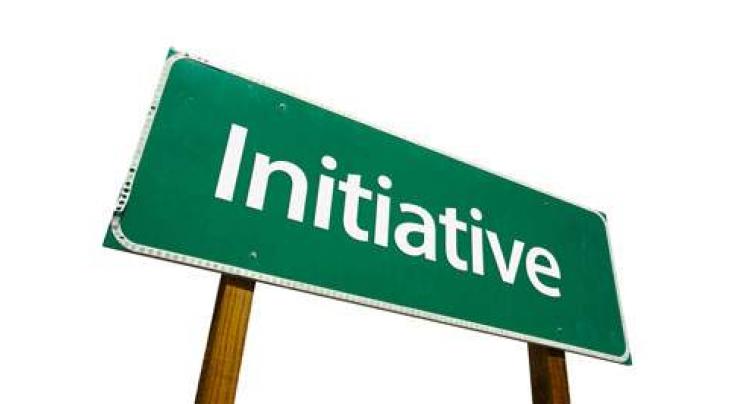
GOVERNMENT INITIATIVES:
Faizan Hashmi Published August 16, 2016 | 12:08 PM

(UrduPoint / Pakistan Point News - 16th Augst,2016) The first signs of improvement appeared in 2013 when Pakistan witnessed a peaceful transition of its civilian government for the first time in history.
Since then, the government has launched concerted programmes with the military to weed out extremism and terrorism from the soil of Pakistan and create an enabling environment. Zarb-e-Azb has immensely helped in this regard and a smooth implementation of the National Action Plan (NAP) too played an important role. The government is now contouring plans to develop Pakistan into a manufacturing hub.
It aims to diversify, grow at a consistently fast pace for the next 10 years, and emerge as the top 10 emerging markets from Asia and Africa. As of now, textile and automotive sectors are showing great potential and the fastest rate of growth.
The government has also managed to complete 11th successful reviews with the International Monetary Fund (IMF), which has further strengthened the confidence of international investors and has placed Pakistan on their radar screen as future investment destination. Consequently, investments are churning in from domestic and international investors.The country is fast attracting foreign investments to its soil, and garnering applause from international organisations.
The World Bank (WB) recently lauded Pakistan for restoring economic stability. "Pakistan has made great progress in restoring macroeconomic stability but much more needs to be done to put Pakistan on a solid, economic growth footing," said Illango Patchamuthu, World Bank Country Director for Pakistan.
"Persistent, steady progress on the structural reform agenda will be necessary if Pakistan is to accelerate its growth recovery and lift millions more out of poverty.
" In a recent report, the World Bank has identified services and large-scale manufacturing as the key supply side drivers of growth. Services are expected to grow over 5 per cent in FY2016 while large scale manufacturing, benefitting from low global commodity prices, is expected to grow between 4 and 4.5 per cent.
"Fiscal consolidation is one of the most significant reform challenges facing Pakistan today," said Enrique Blanco Armas, World Bank Lead Economist for Pakistan. "The Federal government has kept a tight rein on recurrent expenditure, while continuing to invest in Public Sector Development Program expenditure, a very positive development." FOREIGN INVESTMENTS: International rating agencies too have taken notice of these latest changes and shown confidence in the economy.
Prime agencies such as Moody's, Fitch and S&P have upgraded their ratings for Pakistan to either stable or positive. These ratings are important because it acts as a barometer for international investors; and also bring in cheaper credit.
Bolstered by flashing economic indicators, foreign investors are once again showing interest and eagerness to tap into the large aspirational consumer market of the country. As per reports in Reuters, carmakers Renault-Nissan are considering a plant in Pakistan, and Suzuki, which already has presence in the country, said it may invest $460 million in a new factory. Friesland Campina International Holding, a Dutch dairy cooperative, has recently announced plans to buy stake in Pakistani food giant Engro Foods in a deal estimated at $460 million.
Related Topics
Recent Stories

Currency Rate In Pakistan - Dollar, Euro, Pound, Riyal Rates On 8 May 2024

Today Gold Rate in Pakistan 08 May 2024

Delegation of international investors meets Finance Minister

Federal Govt stands with Balochistan for its development: Naqvi

UAE President receives condolences of Prime Minister of Pakistan over passing of ..

ECC approves to enhance wheat procurement targets

UN urges Israel to 'stop escalation' as tanks enter Gaza's Rafah city

EU stumps up $125 mn for Yemen after aid groups' plea

Governor Tessori condemns May 9 riots, calls it a 'pre-planned conspiracy'

PM condoles with UAE President over Sheikh Tahnoun’s death

Milan nets Giro 4th stage, Pogacar retains lead

UBS back in profit after Credit Suisse takeover losses
More Stories From Pakistan
-
Sister killed over domestic dispute
1 minute ago -
Uzbek foreign minister in Islamabad for two-day official visit
2 hours ago -
Mohsin Naqvi pays surprise visit to NADRA center
8 hours ago -
May 9 vandalism against state of Pakistan: Muqam
10 hours ago -

Federal Govt stands with Balochistan for its development: Naqvi
10 hours ago -

Governor Tessori condemns May 9 riots, calls it a 'pre-planned conspiracy'
10 hours ago
-

PM condoles with UAE President over Sheikh Tahnoun’s death
10 hours ago -

Asiya Gul lauds Shafaat's services as DG LG
10 hours ago -

President for dialogue with all political forces in Balochistan
11 hours ago -

Supreme Court adjourns IHC judges letter case
11 hours ago -

RDMC, Hunar Foundation Vocational Training Center inaugurated in Nokkundi
11 hours ago -

Man critically injured as vehicle catches fire amid CNG filling
11 hours ago







